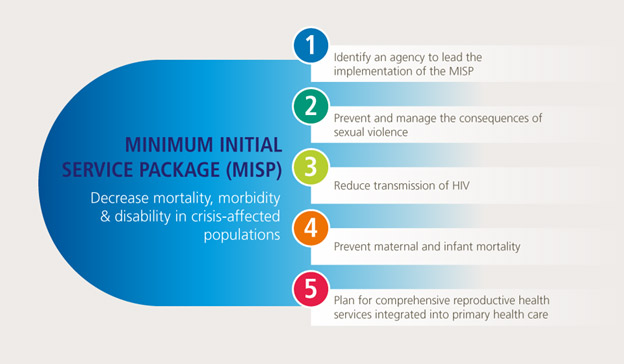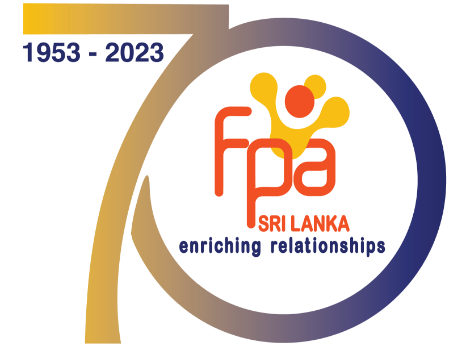Information and Education
Comprehensive Sexuality Education (CSE)
- Advocating for Island-wide CSE programmes to be implemented in schools
- Supporting the Government to develop suitable age appropriate curricular and teacher parent guides in all three languages
- Providing training and capacity building to teachers to deliver CSE in schools
- Using different youth platforms to deliver CSE programmes to young adults and out of school youth.




Minimum Initial Service Package (MISP)
The Minimum Initial Service Package (MISP) is a set of life-saving activities to be implemented at the onset of every humanitarian crisis. It is an internationally accepted minimum standard of care for reproductive health, pioneered and rolled out by IPPF.

- Support the Government to develop and implement integrated emergency preparedness and response policies and plans.
- Build capacity of key respondents ( such as armed forces, grass root level health and social care workers, district level administrators, NGO Staff)
- Deliver MISP during an emergency in partnership with the government and other aligned agencies
Sexual Gender Based Violence (SGBV)
Sexual and gender-based violence (SGBV) refers to any act that is perpetrated against a person’s will and is based on gender norms and unequal power relationships. It encompasses threats of violence and coercion. It can be physical, emotional, psychological, or sexual in nature, and can take the form of a denial of resources or access to services. It inflicts harm on women, girls, men and boys.
As per the Government’s 4 year Strategic Plan to reduce SGBV, we work in 3 key areas
- Reduction of teenage pregnancies
- Elimination of early/child marriage
- Advocating for suitable amendments to current laws on reproductive rights
- Strengthening laws around Intimate Partner Violence ( IPV), Violence against women (VAW) , cyber bullying/violence, sexual harassment in the workplace and elimination of harmful traditional practices.
STI/HIV awareness and prevention
Our main focus is to reach global targets. In order to do so, we advocate and provide services to:
- Reduce transmission of HIV among key populations (Female Sex Workers, Men who have sex with Men, Transgender persons, Drug Users, Beach Boys and People Living with HIV) using the behavior change communication model.
As the Principal Recipient representing the civil society initiatives on HIV prevention, FPA Sri Lanka contributes to the National HIV control efforts led by the Ministry of Health, Government of Sri Lanka with GFATM funding.
The main tasks undertaken under the civil society led initiatives can be categorized under three themes.
Community mobilization: Creation and maintaining partnerships with most at risk (key) populations thereby delivering knowledge on HIV and sexually transmitted infections and condom use.
Community based HIV testing: Once communities are mobilized sufficiently, they are encouraged to get themselves tested for HIV and other STDs and to modify their behavior to reduce risk of acquiring HIV or STD’s.
Providing Treatment, Care and Support: The persons identified with HIV and STDs are encouraged to maintain health and nutritional status and provided with incentives to continue medication provided through the state health sector so that the community viral load remains at a minimum.
The programme is run in 13 Districts where the highest number of most at risk populations are reported.
.png)

